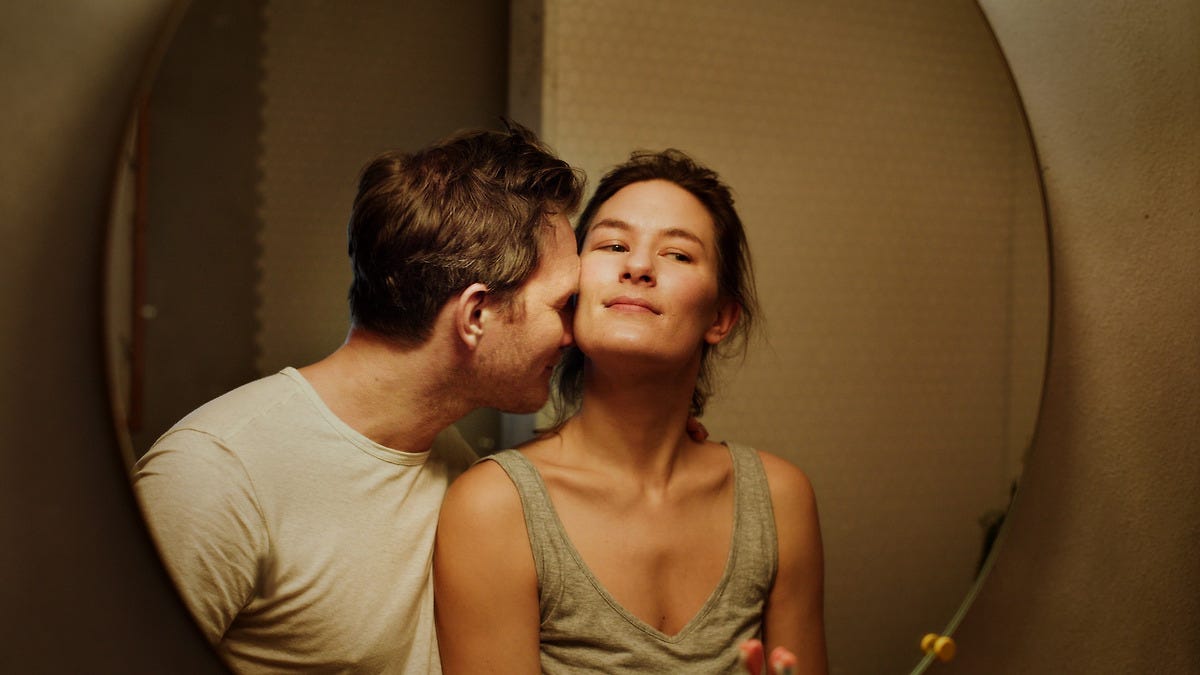It is critically important for me to sit in a dark movie theater multiple times a week. Necessary, even. Imperative to my mental health. I’m pretty sure my parents think I lead a secret double life because every other time they call me, I have to dial back a few hours later being like “sorry, was at the cinema.” But it’s true! Most of the time, it’s true! I was at the cinema! Sadly, way too many of my friends have so-called Lives and Responsibilities and Schedules that render it difficult for them to join me for showings at 4pm on a Wednesday afternoon. Allegedly. This is what they tell me, at least, when I text them a link to the newest French film alongside five question marks. We’ve been over this, Clara: I have a job. Okay. Sure. Fine.
And it is fine, because going to the cinema by yourself is one of life’s greatest pleasures. Every time a friend tells me they’re feeling down, I prescribe a solo movie date like it’s some sort of miracle ibuprofen. Have you tried a film? It’s just nice, I think, to remove for a couple hours every stimulus except for a gigantic screen in front of you. It’s nice. Like, yes, I keep my phone on airplane mode most mornings so no one can reach me unless they send off a little email (call me Kathleen Kelly, I don’t know), but a movie theater is one of the few places on God’s green earth where I actually forget my phone even exists. It disappears into my bag and is not allowed egress until the credits are rolling.
In other words: I do go to that place for magic.
Luckily, Barcelona’s a cinema town. The employees at my local theater hate to see me coming with my gorgeous attitude, little paper ticket in one hand and beautiful soda in another (I am sorry to dentists and to the water lobby and to Kate Moss, I guess, but actually nothing will ever taste as good as a crisp soda in a dark movie theater!).
I say “local theater,” but it takes me about forty minutes to walk to my preferred cinema, which is actually perfect because a long walk works up my film appetite and gives me just enough time to listen to a full album (West End Girl? 44 minutes. Baby? 37 minutes. The Art of Loving? 34. Go on a walk.).
Luckily x 2, the lure of a foreign film will always get me to leave my house. There’s just something about subtitles, I fear.
And because many of my friends here aren’t fluent Spanish speakers, most of these I watch on my own1, just me and the city’s retirees and unemployed sitting in mostly uninterrupted (soda bottles will not open themselves, will they?) silence for 90 to 120 minutes.2 But then I get to walk home, or meet someone for drinks, maybe dinner, and think about a new film. The next morning, I can journal about it for a little while. When I facetime my best friend or my brother or my mom the following afternoon, I can tell them I went to the movies and have they heard about this film and maybe they should check their local independent cinema for showings.
That, I think, is one of the loveliest things about surrounding yourself with creativity—not just the art itself, but all the little conversations it fuels afterwards, the intimacy forged by the act of sharing your thoughts and experiences with the people around you. What’s not to love?
And so, while I’m still in this sentimental mood and without further ado, then, let me tell you about the four most recent foreign films I’ve seen in the last month or so.
*
Loveable (2024)3 (Norway) (dir. Lilja Ingolfsdottir)
Famously, I cannot stay away from a Norwegian movie. I saw this at the beginning of October, when the weather was just starting to turn colder and I could finally wear a little jacket without wanting to off myself. It’s a tender balance.
There’s nothing less helpful than starting a review with “I loved this movie,” but I did. I did love this movie. It left me feeling vulnerable, in the best way, like an entire layer of skin had been stripped away and I didn’t even mind because it made me new.
It was translated to Spanish as Adorable, which I didn’t love. Should’ve been Querible. Adorable is too cute a word—brings to mind a toddler learning how to tie their shoes more than what this was: a middle-aged woman4 (Maria, married to a distractingly attractive man named Sigmund) figuring out if the source of her emotional turmoil is (the horror) more internal than external.
That’s simplifying matters, of course, but it does involve a good bit of how did my relationship with my mother fuck me up and also to what extent, exactly, am I to blame for my own unhappiness. Which doesn’t sound fun, and it’s not, but they’re in Norway and the kitchens are beautiful and gorgeous sweaters are afoot and everyone is tall and looking a disheveled sort of hot that is only possible, I think, if you’re Scandinavian. Like, not once did my girl Maria brush her hair, I think, and even though her teenage daughter calls her out on it, I was like, okay, but it works for her?
In the film, Maria and Sigmund have reached a crossroads in their marriage, brought about by the exhaustion of raising four children while juggling their time-consuming/disappointing careers and their jagged-at-the-edges relationship. Nothing particularly novel about that, I suppose. But the means of the exploration, by way of a separation, therapy sessions and Maria’s gradual, almost heartbreaking realization that actually, there is no reason to feel things as anxiously and abrasively as she does, and the sabotage is partly coming from inside the house … well, folks, no skin off my back to tell you that I teared up. I did!5
Can’t remember where I read this, but somewhere a review called this The Worst Person in the World (2021) for thirty- and forty-somethings, which, hmm, bit rude but fine. Loveable is the story of what happens, I suppose, when the infatuation period is over and you have to figure out how to live with the version of yourself that made it out alive. The immaculate soundtrack helps, too.
After seeing this, I went on a very long walk and met a friend for dinner. We shared a seitan sandwich, one of those plant-based sushi rolls that are always disappointing but wasn’t this time around, and a glorified Snickers bar.
The Quiet Son (2024)6 (France) (dirs. Delphine Coulin and Muriel Coulin)
As a collective people, few annoy me more than the French. I say this with the requisite and appropriate amount of love, respect, and fear. Or whatever. Of course there are several individual French people I care about personally, but something that happens is that I’ll be sitting quietly somewhere, reading a book or having a beer or listening to a friend sitting across from me at the cafe, and I’ll hear a group of French people alorsing and immediately I’ll wonder: why me? It’s inevitable and irrational and because I find myself in a country bordering France, it happens more often than I’d like.
I say all this as a caveat because, much as the French may collectively annoy me, I do like their cinema. French cinema, unlike many (most) French people I know, does not take itself overly seriously. It has fun with the medium. It experiments.
In fact, so much do I appreciate French cinema this wasn’t even the first new-adjacent film this year I watched starring Vincent Lindon, a man I’d accuse of possessing unexplainable swaths of charisma.7

The Quiet Son tells us the story of a young [French] man’s (Fus, played by Benjamin Voisin) not-so-gradual alienation into the [French] far-right, which to me (probably because I’m less familiar with it) is somewhat more terrifying than the American far-right. The radicalization occurs somewhere between plain sight and secretly, such that when The Thing that Happens happens, the young man’s father, played by the aforementioned Lindon, is both shell-shocked and resigned. There is something of the expected in tragedy.
The good thing is that I am always anxious, so although this film did subject me to (1) dozens of French people and (2) the rising tide of fascism, I maintained a more or less even-keel. A lot of people couldn’t say that. Was it my favorite French film of the year? No. I probably enjoyed Morlaix (2025) more—it was weirder, more experimental, and it featured conversations and scenes that I am thinking about to this day, even if in its totality it was arguably a poorer film than The Quiet Son. Watch Morlaix if you can. And watch this one, too, even if it’s just to let me know if you, too, find Vincent Lindon unexpectedly hot. Let’s get a focus group going.
After seeing this, I facetimed my mom and my best friend and then I couldn’t sleep (fascism and anxiety and probably too much coffee), so I read some Italo Calvino (more on that at a later date).
It Was Just an Accident (2025)8 (Iran)9 (dir. Jafar Panahi)
Keep reading with a 7-day free trial
Subscribe to Hmm That's Interesting to keep reading this post and get 7 days of free access to the full post archives.



